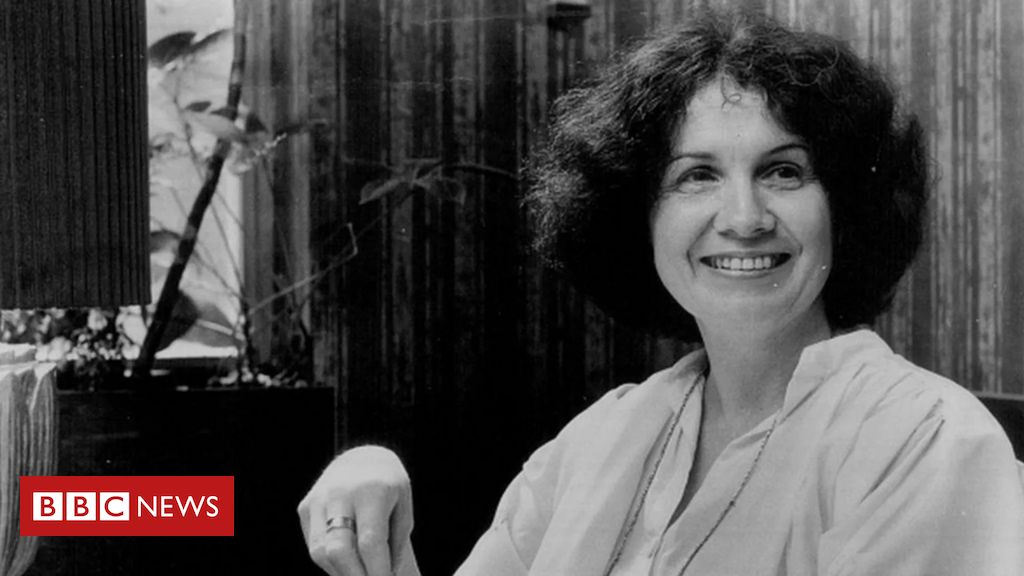Credit, Paul Stephen Pearson/Fairfax Media/Getty Images
- author, Rachel Looker
- To roll, BBC News
Canadian writer Alice Munro, winner of the Nobel Prize for Literature in 2013, has died at the age of 92.
Munro has been writing short stories for over 60 years, often focusing on life in rural Canada.
She died Monday evening at her home in Port Hope, Ontario, her family and publisher confirmed.
Munro has often been compared to the Russian writer Anton Chekhov for the insight and compassion found in his stories.
“Alice Munro is a national treasure – a writer of immense depth, empathy and humanity, whose work is read, admired and appreciated by readers across Canada and around the world,” said Kristin Cochrane, CEO of the publisher Penguin Random House Canada, in a press release. statement.
His first big success came in 1968, with his collection of short stories, Dance of happy shadowsabout life in suburban western Ontario, won Canada’s highest literary honor, the Governor General’s Award.
It was the first of three Governor General’s Awards she would win during her lifetime.
Munro has published thirteen collections of short stories, as well as a novel, Lives of girls and womenand two of the two volumes of short stories, Selected stories.
In 1977, the New Yorker magazine published one of Munro’s stories, Royal beats, based on the punishments she received from her father when she was young. She continued to enjoy a long relationship with the magazine.
Munro, the daughter of a fox breeder and a teacher, was born in 1931 in Wingham, Ontario. Many of his stories are set in the region and describe the people, culture and way of life of the region.
As a youth, she was named valedictorian of her high school and received a scholarship to the University of Western Ontario in London (in this case, the Canadian city of London).
Munro had the highest grade in English of any student who applied to university.
While pursuing graduate studies, Munro said he spent about half his time on academic pursuits and the other half on writing.
In the 1950s and 1960s, his short stories were broadcast on the CBC network and published in several Canadian magazines.
Some of his stories compared life before and after the revolutions in the streets and customs of the 1960s.
“Being born in 1931, I was a little old, but not too old, and women like me, after a few years, were wearing mini-skirts and jumping around,” she said.
A well-known story, The bear came over the mountainwas made into a 2006 film Far from herwith Julie Christie and Gordon Pinsent.
In 2009, Munro won the Man Booker International Prize. for the entire work.
The judges said in a statement at the time: “Reading Alice Munro means learning something you’ve never thought of before.”
Credit, REUTERS/Andy Clark
They added that Munro “brings as much depth, wisdom and precision to each story as most novelists bring to a lifetime of novels.”
She went on to win the Nobel Prize in 2013. Previous winners include literary giants such as Rudyard Kipling, Toni Morrison and Ernest Hemingway.
The Nobel committee called Munro a “master of the contemporary short story.”
Munro said in a 2013 interview with The Guardian newspaper that he had “written personal stories all my life”.
“Maybe I write stories that really interest people, maybe it’s the complexity and the lives that are presented in them,” she told the newspaper.
“I hope it’s a good read. I hope it touches people.”
Your latest collection of stories, Dear life (“Vida Querida”, in Portuguese, published by Biblioteca Azul), was published in 2012. It included partially autobiographical stories.
Munro told the National Post newspaper that the book was special because he probably wouldn’t write it again.
“Not that I didn’t like writing, but I think you get to a point where you start to think differently about your life,” she said.

“Prone to fits of apathy. Beer evangelist. Incurable coffeeaholic. Internet expert.”







